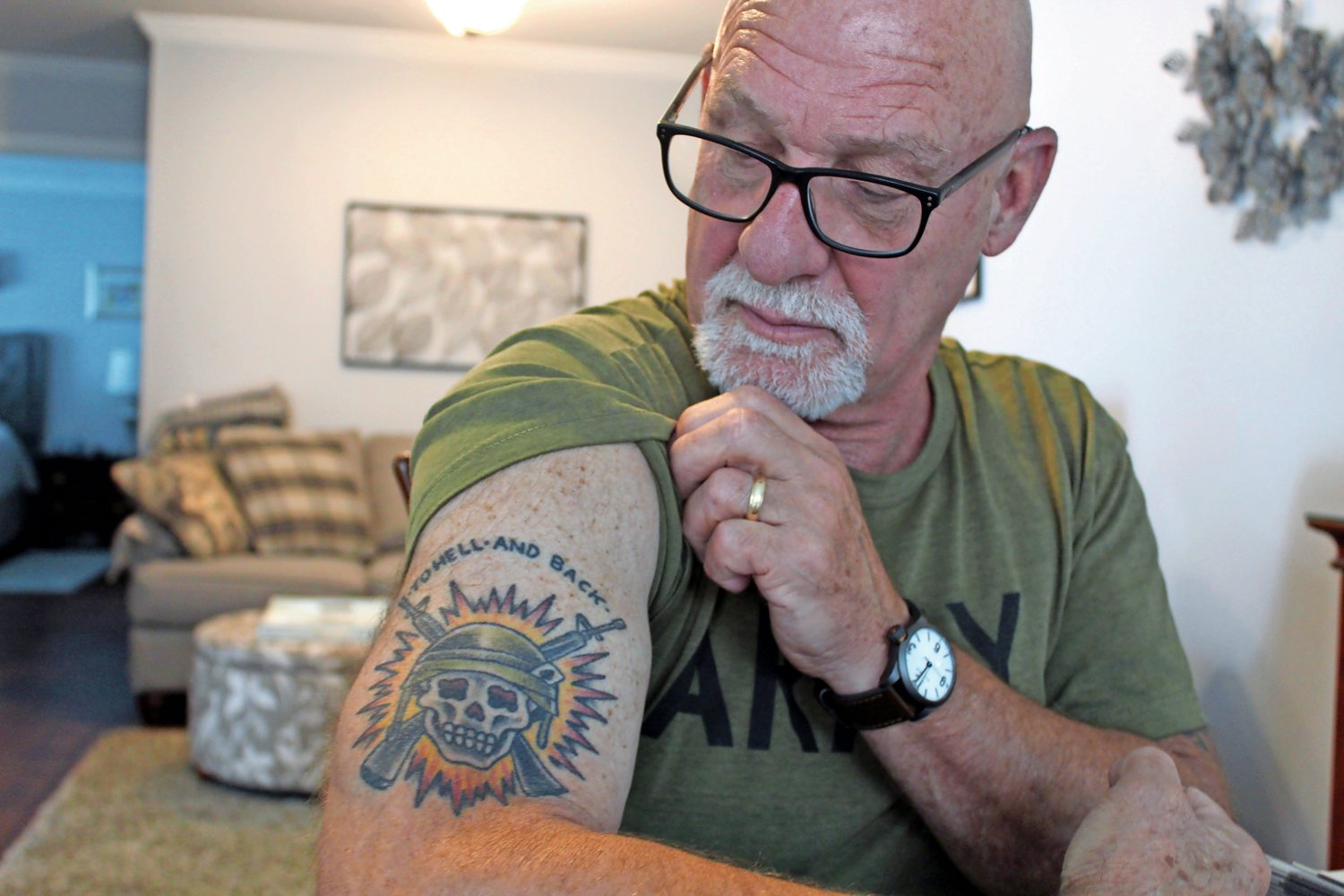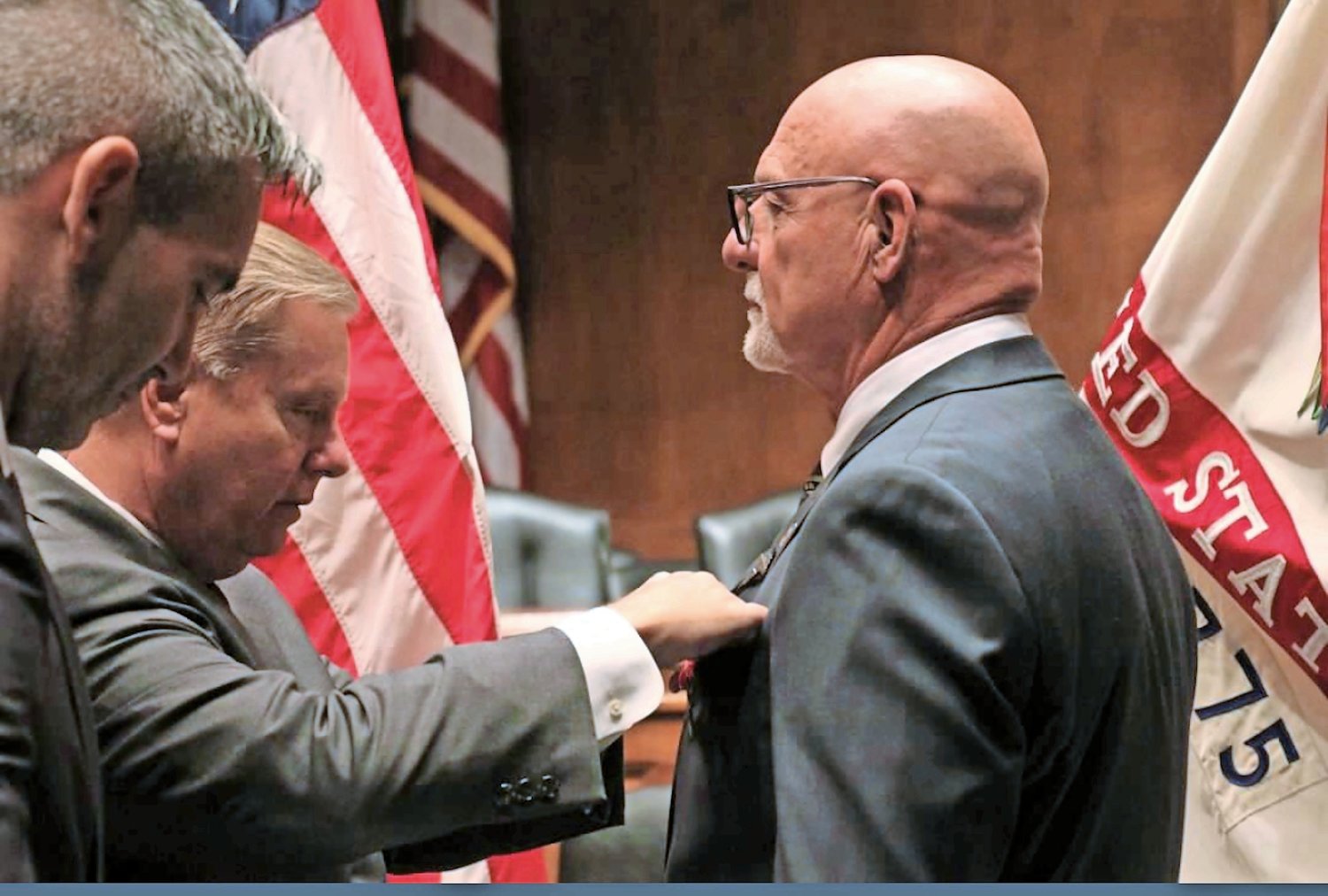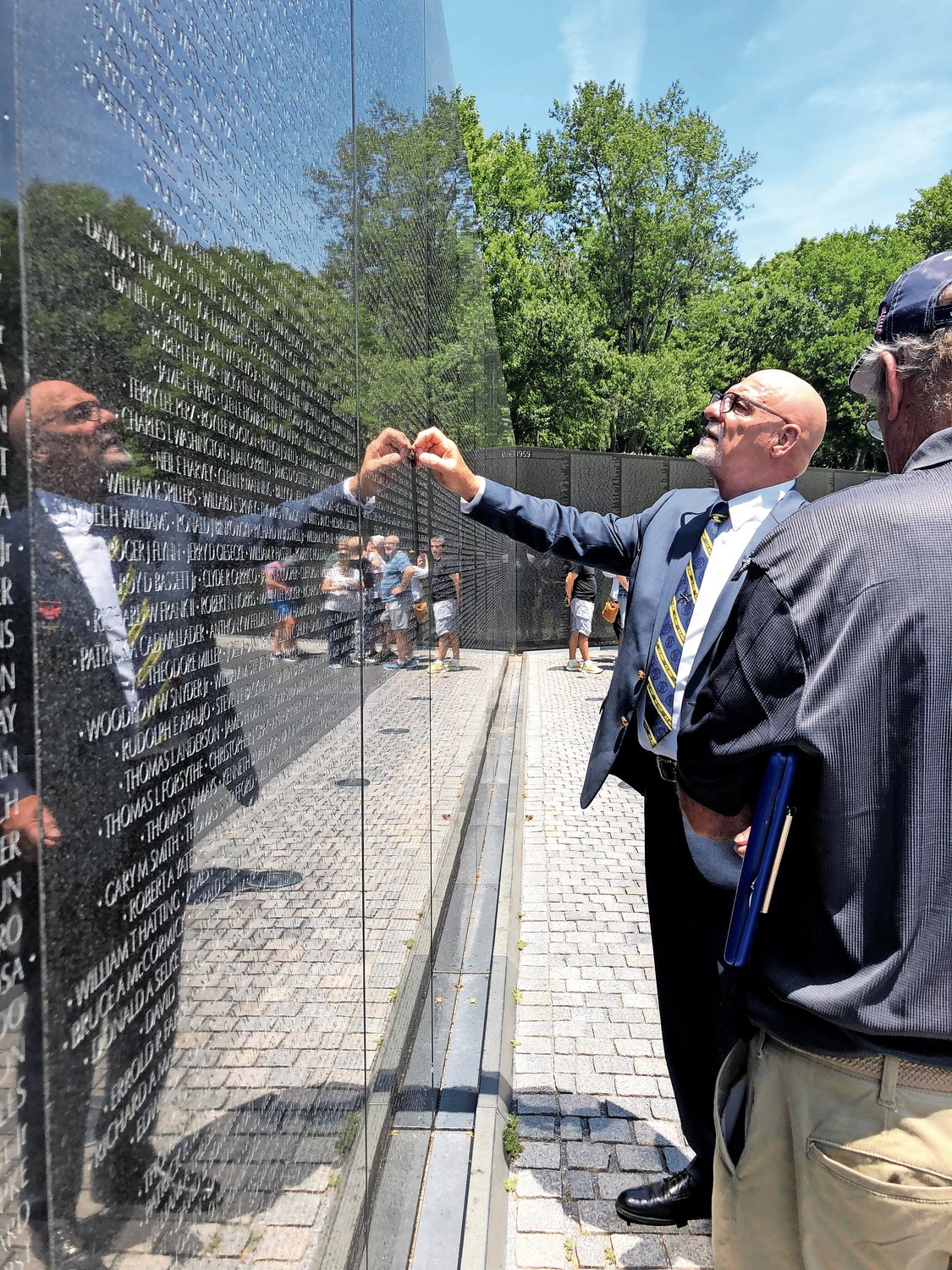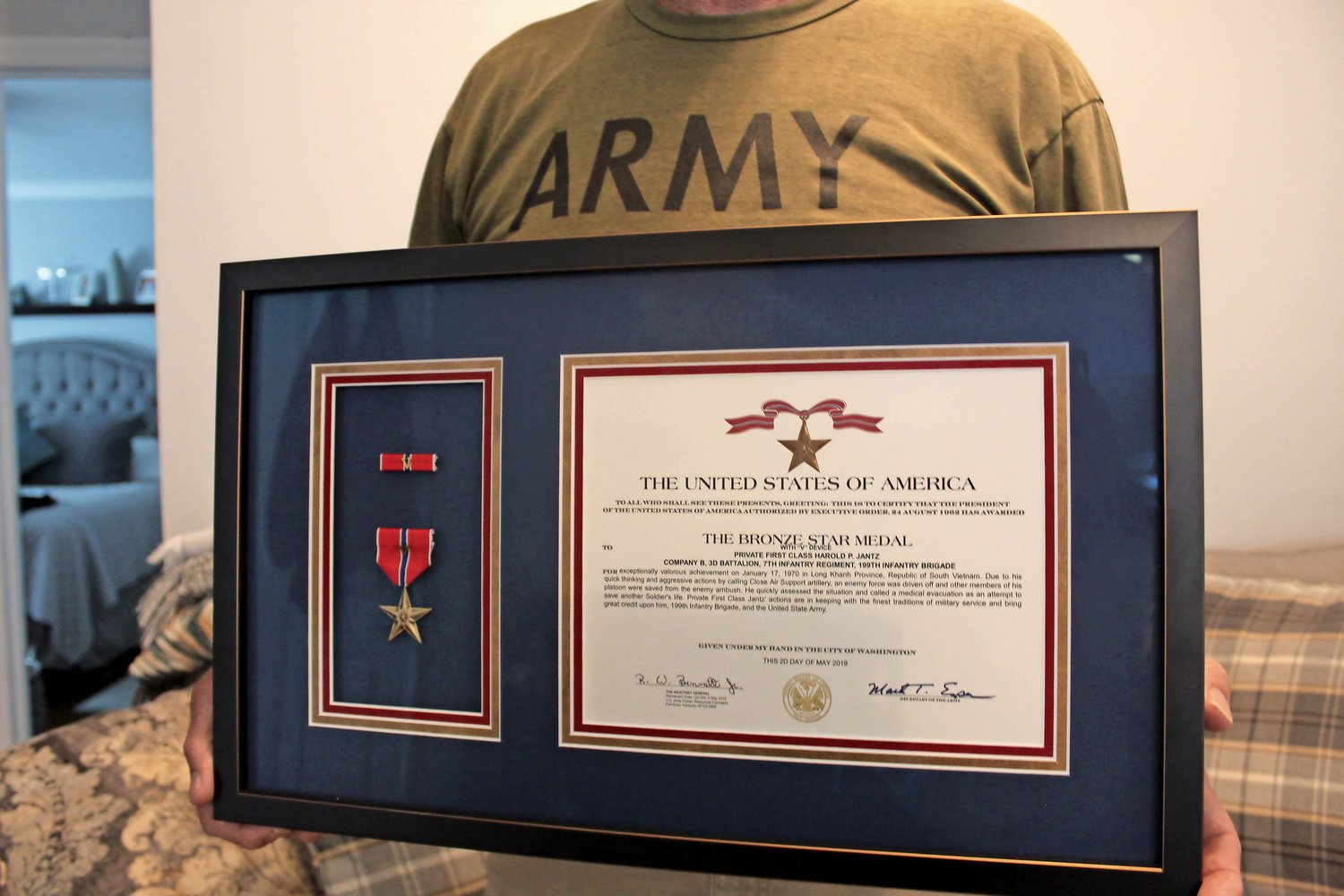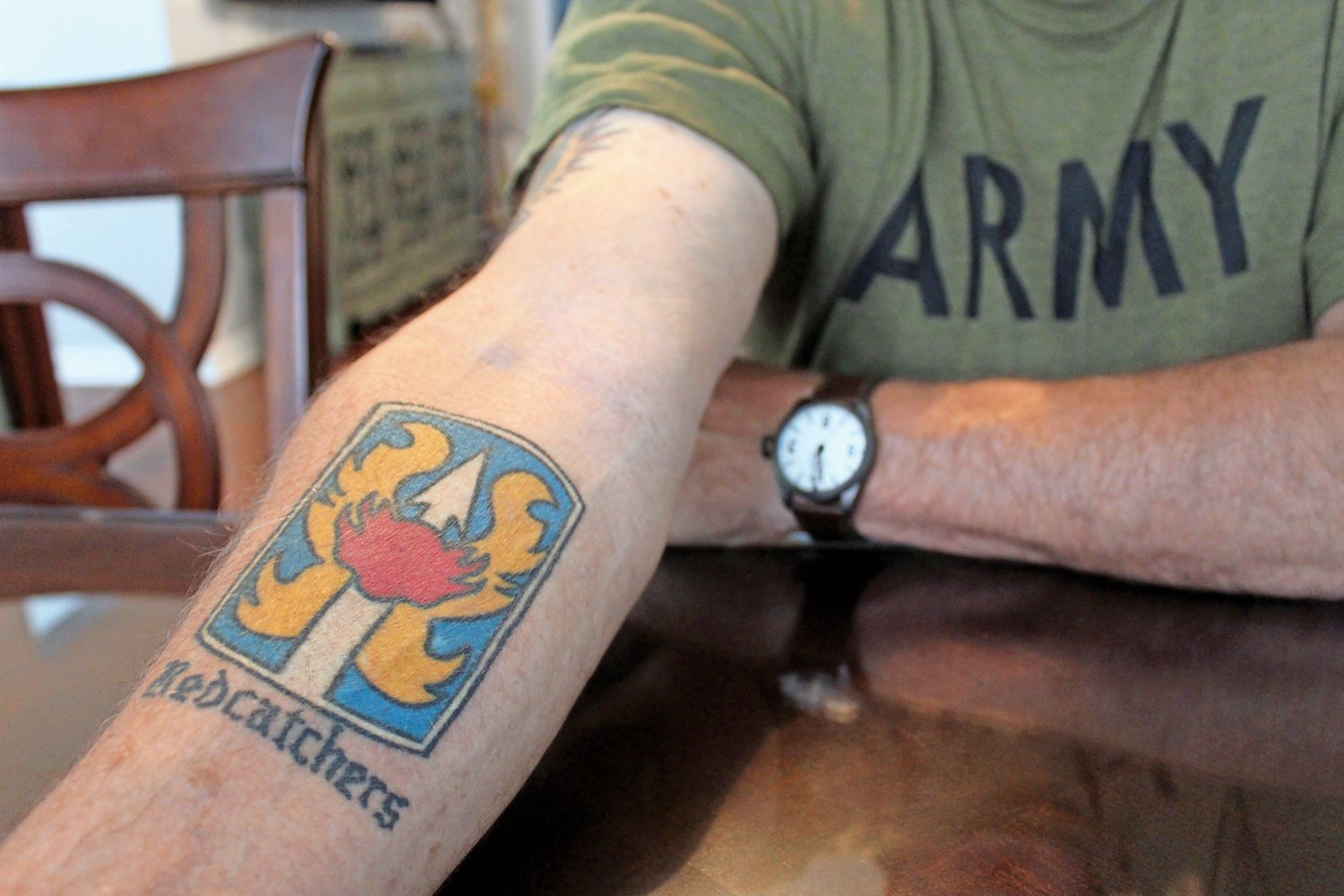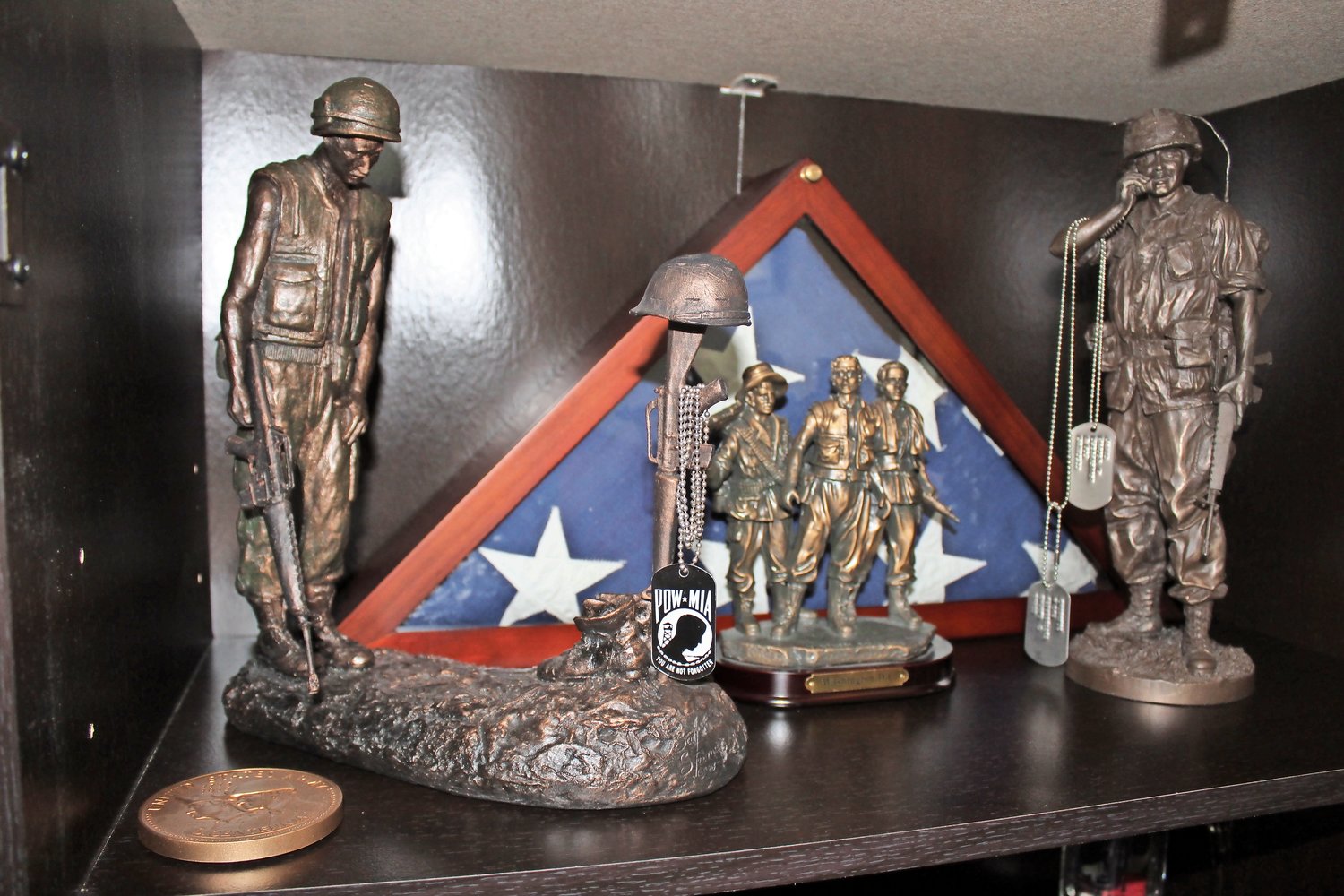Thursday, April 25, 2024
 47.0°,
Mostly Cloudy
47.0°,
Mostly Cloudy
Bellmore Army veteran awarded Bronze Star Medal with valor
‘They knew I was the guy that was gonna get ’em out’
It’s been 50 years since Army veteran Harold Jantz singlehandedly saved his platoon during an enemy ambush in a Vietnam jungle, but he said that night still haunts him to this day. “That was one of many firefights I was in,” the 70-year-old Jantz said, “but this is the one that sticks to me most.”
The Bellmore native was drafted into the Vietnam War in 1969, when he was 20, just a year after he graduated from John F. Kennedy High School. Jantz was a radio transmission operator in the Army’s 199th Infantry Brigade, an elite group nicknamed the Redcatchers, he said. Jantz has the brigade’s insignia tattooed on the inside of his right forearm.
During a patrol on Jan. 17, 1970, Jantz was forced to radio for backup after part of his 16-man platoon was ambushed in the Long Khanh province of what was then South Vietnam. He also rescued two of his fallen comrades — James Thonen and Lynwood Thornton — to ensure that their bodies would be returned to base and, eventually, home to their families. Jantz was ordered to leave any casualties behind, but refused.
Last month, he was awarded the Bronze Star Medal with valor for his actions that day. The designation is the military’s fourth-highest award for combat bravery.
Jantz recalled the incident from his home in Patchogue, where he is first vice commander of American Legion Post 269. While he was teaching flag etiquette to a group of seventh- and eighth-graders earlier this year, one of the students recognized Jantz’s striking Redcatchers tattoo. The boy said his grandfather had the same one.
In June, Jantz connected with that infantry brother. The two were having lunch at Ruby Tuesday in Medford when Jantz got a call from his sister, Paula Beckman, who had a very important call on the other line.
“A gentleman named William Smith, who works for [Sen.] Lindsey Graham, said, ‘Congratulations, you’ve just been awarded the Bronze Star [with] valor,’” Jantz recounted. “I almost dropped the phone.”
Jantz knew that Paula and his brother-in-law, Tom Beckman, who is also retired military, were working with Jantz’s former lieutenant, Roger Soiset, to get Thornton a Bronze Star. Jantz had introduced his family to Soiset at an Army reunion some years before.
“They went after this paperwork six years ago, and about a year and a half ago they went to Sen. Lindsey Graham,” Jantz said. Recipients of the Bronze Star Medal are required to have a senator’s sponsorship, and the Beckmans reached out to Graham to sponsor Thornton’s medal because they were living in South Carolina at the time.
“Without me knowing it,” Jantz added, “they also put me in.”
Robert Kennie was there the night Jantz saved their platoon. “He’ll tell you, ‘I was just doing my job,’” said Kennie, who lives in Boston, “but everybody understood that if he didn’t do anything, we’d all be dead.”
The platoon was split into two eight-man squads. Kennie was in the first squad with the platoon’s sergeant, and Jantz was in the second with Lieutenant Soiset. The first squad crossed a dried-up river bank and came upon a bunker complex with an underground hospital. The surgical hammocks inside appeared to be soaked in blood, Kennie recalled, as if someone had been there minutes before.
Jantz said that American intelligence had been trying to locate the complex. “They had no concept of where it was,” he said. “But guess what? We found it.” The bunker was being guarded by a North Vietnam Army battalion that outnumbered Jantz’s platoon 150 to one.
The North Vietnamese opened fire on the first squad, wounding Thonen and killing Thornton, the radio transmission operator. Jantz knew something was wrong when he tried to radio Thornton, to no avail. The second squad moved across the river bank, trying to find the rest of the platoon, and were met with enemy fire. Amid the hail of bullets, Jantz grabbed a medic, Richard Uhler, to work on Thonen, who was “wounded very badly,” he said.
Jantz radioed for a medevac helicopter, and one arrived to retrieve Thonen. “One of our other guys jumped on and went up with him,” Jantz said, but “[Thonen] died in his arms going up.” Jantz also radioed for backup artillery and gun ships. The firefight lasted for almost seven hours.
When it finally died down, the platoon was ordered to retreat to a landing zone four miles away. They were also ordered to leave any casualties behind. “I refused to do that,” Jantz said. The platoon fashioned a stretcher out of ponchos and bamboo and used it to carry Thornton’s body to safety.
“After that day, the guys around me knew how I would react to anything,” Jantz said. “They knew I was the guy that was gonna get ’em out of there.”
On the day Jantz arrived back home in Bellmore in September 1970, every house on Wilson Avenue had an American flag flapping in the breeze. All of his neighbors were gathered at his parents’ house in celebration of his homecoming.
“I used to say to my friends, ‘that’s my G.I. Joe buddy,’” his sister said.
Jantz went to college on the GI Bill, and went into construction. He married his high school sweetheart, Valerie Dborak, and they raised three sons in Wantagh. For much of his adult life, Jantz was tight-lipped about his time in the military, but he began to open up with the advent of the Internet, his son Nicholas said, when he was able to reconnect with some of his platoon members.
Nicholas said that watching his father receive the Bronze Star was “remarkable.” “He’s not the type of person to pursue a medal for himself — he loves helping people in his own, quiet way,” Nicholas said, “but knowing what he had to go through, we’re all so proud of him.”
The paperwork for Jantz’s Bronze Star was signed on June 5, which would have been Thornton’s 70th birthday. On July 27, Jantz traveled to Thomasville, Ga., with Soiset, Kennie and Uhler to deliver Thornton’s medal to his family.
Kennie recalled a sense of closure permeating the day. “To get to see our brother at his resting place, and meet his family, and answer the questions that had plagued them,” he said, “we were able to ease some of the pain that we still have.”
Receiving the Bronze Star, Jantz said, was a feeling he “can’t put into words.” His heroic act in Vietnam “made me the man I am today, and I’d do it again.”
HELP SUPPORT LOCAL JOURNALISM
The worldwide pandemic has threatened many of the businesses you rely on every day, but don’t let it take away your source for local news. Now more than ever, we need your help to ensure nothing but the best in hyperlocal community journalism comes straight to you. Consider supporting the Herald with a small donation. It can be a one-time, or a monthly contribution, to help ensure we’re here through this crisis. To donate or for more information, click here.
Sponsored content
Other items that may interest you

